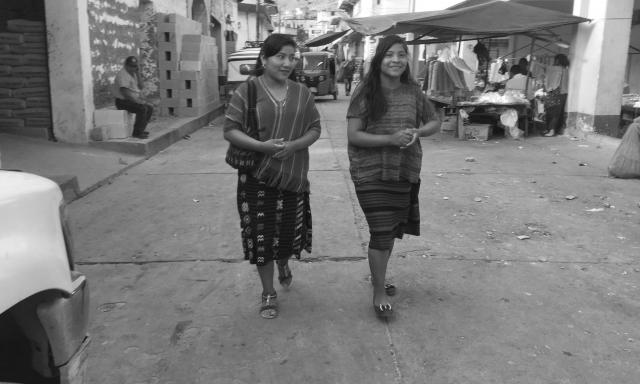

 Article
Article

 Areas in Mesoamerica see health equity gaps in newborn, infant and maternal health. The Inter-American Development Bank partnered wit ha number of partners to create the Salud Mesoamerica Initiative an innovative way to improve access to quality health care for 1.8 million women and children living among the poorest 20 percent of the population.
Areas in Mesoamerica see health equity gaps in newborn, infant and maternal health. The Inter-American Development Bank partnered wit ha number of partners to create the Salud Mesoamerica Initiative an innovative way to improve access to quality health care for 1.8 million women and children living among the poorest 20 percent of the population.

Insights from
Written by
Health Equity Gaps
National averages related to health in Belize, Costa Rica, El Salvador, Guatemala, Honduras, Nicaragua, Panama, and the state of Chiapas, Mexico, have shown improvements in recent decades, yet still had substantial health equity gaps in newborn, infant and maternal health. To address these equity gaps, the Inter-American Development Bank (IDB) joined forces with a number of partners to launch an innovative initiative to improve access to quality health care for 1.8 million women and children living among the poorest 20 percent of the population.
Salud Mesoamerica Initiative (SMI)
The Salud Mesoamerica Initiative is a public-private initiative managed by the Inter-American Development Bank and financed by the Bill & Melinda Gates Foundation, the Carlos Slim Foundation, the Governments of Canada and Spain and eight countries in Mesoamerica. Its objective is to support efforts to reduce health equity gaps, especially for 1.8 million women and children living among the poorest 20 percent of the population in each area.
SMI implements a results-based financing model based on the following:
SMI achieves its results by focusing on collective impact, commitment, measurable impact and innovation. It kicked off efforts by convening Mesoamerican health ministries to forge collaborations, ensure country buy-in and mobilize support. There is a technical secretariat, managed by the IDB, to support operation design, implementation and evaluation across countries. With support from an external evaluator, SMI conducted baseline studies to assess the status of measurable coverage, quality and effective coverage indicators to be achieved at the national level, as well as three different and independent verifications of targets every three years to measure impact.
SMI is innovative by design thanks to its implementation of a results-based financing model (RBF). As such, 50 percent of financing comes from donors, while the other 50 percent comes from the countries themselves as co-financiers and executors. Nations that achieve eight of the 10 previously negotiated performance indicators then receive a performance incentive equal to 50 percent of their contribution; the incentive is in cash and of discretionary use in the health sector at the national level (not provider level). To date, the $132 million provided by donors have leveraged $44 million in domestic financing from beneficiary countries.
After nine years of SMI execution, the countries have made significant progress in reducing gaps in coverage and quality for the poorest populations and in the national average. The initiative has enhanced the timeliness and quality of prenatal care, increased the coverage of institutional delivery, and improved the quality of care for women and newborns facing obstetric and neonatal complications.
Maternal and infant mortality continue to plague countries with deeply embedded pockets of poverty. New solutions and new partnerships are key to achieving results. SMI brings together donor and host governments, private sector foundations and international financing, as well as uses a “pay for performance” system. It has driven results inside Central American countries where mothers and babies continue to die needlessly. It has proven improvements on measurements like access to skilled birth attendants, adolescent pregnancy rates and use of contraceptives, all key interventions that lower maternal and neonatal mortality. It is a force multiplier that puts power in the hands of governments to save their own citizens.
In my experience in working in over 110 countries around the world, tackling big systemic issues like equitable health care in the developing world, such as Central America, Asia and Africa, depended upon the engagement of national and local governments. Putting those actors in the lead and supporting staff with funding and expertise produced durable solutions and led to real change. By making sure that solutions were developed in the local context and augmented with global support and expertise, the lives of millions of women and children have been saved.
The Darden School of Business’ Institute for Business in Society partners with Concordia and the U.S. Department of State Secretary’s Office of Global Partnerships to present the annual P3 Impact Award, which recognizes leading public-private partnerships that improve communities around the world. This year’s award will be presented at the Concordia Annual Summit the week of 20 September 2021. The five finalists will be highlighted on Darden Ideas to Action on Fridays leading up to the event.
This article was developed with the support of Darden’s Institute for Business in Society, at which Maggie Morse is director of programs. Carolyn Miles (MBA ’88) is a special adviser and executive fellow at Darden and previously served as CEO of Save the Children.
Miles served for eight years as chief executive officer of Save the Children, an organization that gives children around the world a healthy start, opportunities to learn and protection from harm. Before that senior leadership role, she had served in other leadership capacities since 1998, and under her senior leadership, the organization has more than doubled the number of children it reaches with nutrition, health, education and other programs.
Miles was named one of the 50 World’s Greatest Leaders by Fortune magazine, one of her many awards. She has also served on numerous boards, including Doerr Institute, Blackbaud, InterAction, USGLC, MFAN, Academy of Education, Arts and Sciences, FSG and Darden.
B.S., Bucknell University; MBA; University of Virginia Darden School of Business